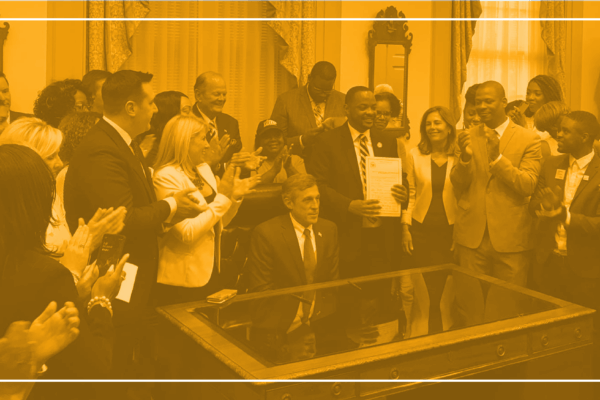By Edward Clarke, Smart Justice Ambassador with the Campaign for Smart Justice
Jeremy McDole.
Yaheem Harris.
Lymond Moses.
Brandon Roberts.
Now Rodney Robinson II.
Since 2005, Delaware police officers have shot nearly 60 people, killing 32 of them. Last weekend’s shooting in Dewey Beach was only the latest in a long line of shootings by Delaware law enforcement that have gone without any real accountability for the officers involved. And these are just the shootings. They don’t even begin to scratch the surface of the mental, emotional, and physical violence that police perpetrate in our communities every single day.
So why isn’t our government doing more to protect us?
We saw a spark of hope in 2020, when lawmakers made big promises on police reform in the wake of nationwide protests after the murders of George Floyd and Breonna Taylor. And then, in the months that followed, our communities participated in their processes to make sure that they heard us loud and clear: we wanted police reform, NOW.
In 2021, we thought that our voices were heard when a bill, SB 149, was introduced that promised to amend the Law Enforcement Officers’ Bill of Rights (LEOBOR). That kind of reform would have been a historic move in Delaware — a state that’s the worst in the nation on police secrecy — because it would have allowed the public access to police disciplinary records, and it would have given communities the power to hear and decide on police disciplinary matters with local, county, and state community oversight boards.
These reforms are proven to be effective, and they’re what our communities want. 71 percent of Delawareans support creating community oversight boards that would investigate and advise on discipline for officers who engage in misconduct and 68 percent of Delawareans support making Delaware police officers’ disciplinary records available to the public.
But earlier this week, just after a man died at the hands of police in Delaware once again, our lawmakers killed the original SB 149 and introduced a substitute instead.
The new version of the bill takes community oversight out of our hands by creating just one statewide oversight board that is controlled by the Attorney General — our state’s top law enforcement official — leaving local boards without any meaningful oversight power. The substitute bill also continues to keep police disciplinary records secret, offering only a small number of records for public access.
If the public already distrusts law enforcement, creating toothless oversight boards that are controlled by law enforcement will only exacerbate those tensions. Continuing the state’s extreme secrecy in police misconduct cases compounds that even further.
This substitute bill doesn’t reform LEOBOR. It’s not a compromise. It’s a disappointment to our communities, and it breaks the promises that our lawmakers made to protect us with true, meaningful police reform. Why is the General Assembly prioritizing the comfort of law enforcement over the safety of our communities?



